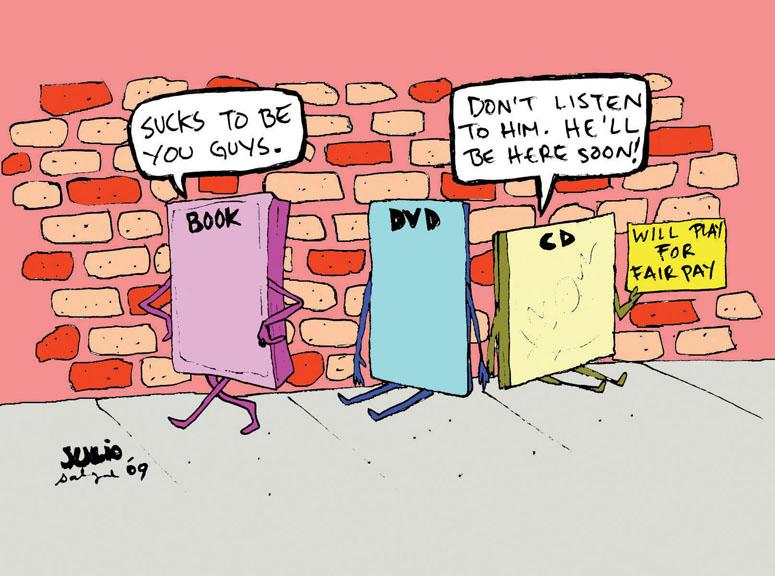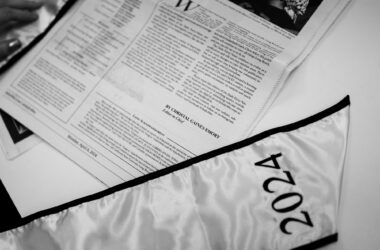Walt Disney once said, “There is more treasure in books than in all the pirate’s loot on Treasure Island.” Probably the last thing college students want to read about at this time of year is books.
The Internet is far vaster than all of the oceans on the globe and, apparently, there are more pirates in cyberspace than are sailing off the coast of Somalia. Some publishers are claiming to be victimized by cyber pirates filching illegal freebie e-books, much like musicians and filmmakers have been for more than a decade.
A recent article in The New York Times reported writers and publishers have found unauthorized copies of their works on websites like Sribd and Wattpad, sites that encourage users to post things like self-published books and college theses.
Digital copies by writers ranging from Stephen King to John Grisham have been found on such websites, without being authorized by the writers or their publishing companies.
The publishing industry isn’t taking this type of theft lightly. Fearful of being ripped off like a previous generation of once-illegal file-sharing services like Napster, some publishers have full-time employees tracking down unauthorized titles.
Napster was sued for copyright infringement by Metallica in 2000 when an unreleased demo of its song “I Disappear” popped up all over the Internet. Not long after Metallica filed its lawsuit, Madonna, A&M Records and a slew of others dragged Napster’s former owners into court. The result was that Napster, after being ordered to block access to stolen material and couldn’t comply, was forced to shut down.
Of course, the company was sold and resurfaced selling legitimate copies of copyrighted material, but not before costing artists untold millions of dollars in royalties. We’re certain at least some of us at the Daily Forty-Niner and other Cal State Long Beach students had some freebie MP3 recordings, although nobody’s copping to it.
When file-sharing services like RapidShare and MediaFire are found to have illegitimate copies, some publishers contact them and ask them to remove the pirated materials.
Other publishers, however, are leaning toward keeping publicity about the piracy on the down low.
“Publishers and authors say they can learn from their peers in music, who alienated fans by using the courts aggressively to go after college students and Napster before it converted to a legitimate online store,” The New York Times reported.
Some writers, like King, say tracking down pirated versions of his work isn’t worth the hassle. “The question is, how much time and energy do I want to spend chasing these guys,” King told The N.Y. Times. “My sense is that most of them live in basements floored with carpeting remnants, living on Funions and discount beer.”
While we don’t have anything against free stuff, King has kind of a lackadaisical attitude. Much like musicians and movie companies should be paid the fair-market value of their original creative works — so should book authors and publishing companies.
Some of the most popular illegal uploads are major bestsellers. Among the most frequently pirated e-books are the “Twilight” series and the “Dummies” do-it-yourself books.
What we warn is that it’s easier, fairer to the artist — and probably cheaper considering the price of bail and a criminal trial — to pay for the materials, even if it seems effortless to steal. We certainly wouldn’t want stolen Daily Forty-Niner editorials — as good as they are — to pop up in somebody’s basement covered with Funions crumbs.




